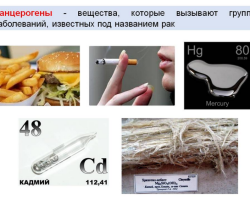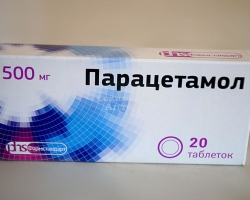Sometimes the use of antibiotics leads to serious disorders in the work of organs and systems. To prevent this from happening, it is important to know in which situations you should refrain from taking antibiotics or ask the doctor to choose the most gentle drug.
Content
- Antibiotics - benefits and harm, side effects
- Video: Antibiotics benefits and harms
- How do antibiotics affect viruses and inflammation?
- How do antibiotics affect and act on the heart?
- How do antibiotics affect the intestinal microflora, digestion of proteins?
- How do antibiotics affect conception, spermogram, pregnancy, fetus?
- Video: The effect of antibiotics on spermogram indicators
- How do antibiotics affect breast milk?
- How do antibiotics affect a blood and urine test?
- How do antibiotics affect hormones?
- How do antibiotics affect menstruation?
- How do antibiotics affect potency?
- How do antibiotics affect immunity?
- How do antibiotics affect pressure?
- How do antibiotics affect the stomach, pancreas?
- How do antibiotics affect the liver, kidneys?
- How do antibiotics affect the nervous system?
- How do antibiotics affect ear?
- How do antibiotics affect the teeth?
- How do antibiotics affect hemoglobin?
- After how long are the antibiotics from the body?
- How to cleanse and restore the body after antibiotics?
- Video: What will happen after antibiotics?
Antibiotics - drugs that cannot be dispensed with in the fight against dangerous bacterial diseases. But in some cases, taking antibiotics can harm health, causing serious disorders in the body.
Antibiotic (antibioticum) Translated from Latin means "against life."
The first antibiotic (penicillin) obtained from mold had a narrow spectrum of action and was safe for human health. However, modern antibiotics of the new generation kill all bacteria without exception, which are in the body, including useful ones. After taking them, the microflora is disturbed, and the immunity is very weakening.
So that the intake of antibiotics does not worsen the patient's condition, it is important not only to observe the correct dosage, but also to have an idea of \u200b\u200bthe possible consequences of treatment.

Antibiotics - benefits and harm, side effects
Antibacterial drugs are effective in:
- treatment of infectious diseases of the nasopharynx
- severe skin diseases (furunculosis, hydradenitis) and mucous membranes
- bronchitis and pneumonia
- infections of the genitourinary system
- severe poisoning
Often antibiotics are used thoughtlessly and uncontrollably. There will be no benefit from such a “treatment”, but you can harm the body. Antibacterial drugs in the treatment of viral diseases are absolutely ineffective. For example, using them for the treatment of acute respiratory viral infections, influenza only adds a load on the body and complicates recovery.

Side effects of antibiotic therapy:
- dysbiosis
- allergic manifestations
- toxic effects on the liver, kidneys, ENT organs
- development of microbes stability to antibiotic action
- intoxication of the body that occurs as a result of the death of microbes
- violation of the formation of immunity
- high probability of a second disease after the end of treatment with antibiotics
Important: a long -term intake of antibiotics will necessarily have side effects, the main of which is the harm of intestinal microflora.

Video: Antibiotics benefits and harms
How do antibiotics affect viruses and inflammation?
Virus - protein structure containing nucleic acid inside. Viral shell proteins serve as protection to preserve hereditary gene information. During propagation, viruses reproduce their copies, also equipped with parental genes. To successfully multiply, viruses have to make your way inside healthy cells.
If you try to affect the antibiotic on the cell infected with the virus, nothing will happen to the virus, because the effect of antibiotics is aimed exclusively to preventing the formation of cells of cells or suppressing protein biosynthesis. Since there are neither cellular walls nor ribosomes have viruses, the antibiotic will be absolutely useless.
In other words, the structure of viruses differs from the structure of bacteria sensitive to antibiotics, therefore, special antiviral drugs are used to suppress the functioning of viral proteins and interrupt the process of their vital activity.
Important: often doctors prescribe antibiotics in the treatment of viral diseases. This is done to overcome the bacterial complication that occurs against the background of a viral disease.

How do antibiotics affect and act on the heart?
The opinion is erroneous that taking antibiotics does not affect the state of the cardiovascular system. Proof of this is the results of an experiment conducted by Danish scientists in 1997 - 2011. During this time, the researchers treated the treatment results of more than 5 million people.
For experience, volunteers aged 40 to 74 years for 7 days took antibiotics often used to treat bronchitis, pneumonia and infections of ENT organs. As a result of the experiment, it turned out that taking antibiotics such as roxytomycin and clarithromycin increases the risk of cardiac arrest by 75%.
Important: in the course of the experiment, it turned out that penicillin is least dangerous for the heart. Doctors should pay attention to this fact and, if possible, choose this drug for treatment.
In addition, antibiotics slightly increase the electrical activity of the heart, which can provoke the occurrence of arrhythmias.

How do antibiotics affect the intestinal microflora, digestion of proteins?
Antibiotics restrain the growth of intestinal microflora, gradually destroying it. These drugs are hostile to intestinal bacteria and at the same time are resistant to their influence. Thus, taking antibiotics is a step towards suppressing the life of useful microbes and their death.
After the treatment is completed inside the intestine, sterility is formed at a short time. But very soon, mushrooms and parasites settled in an environment formed by antibacterial drugs.
Normal microflora will not immediately be able to recover due to "holes" in immunity.
Against this background, new diseases often flash, the normal work of systems, organs and tissues is disrupted.
All food macro elements, among which there are proteins, are digested in the upper small intestine. At the same time, a small amount of proteins fall into the colon undigested. Here, unexplored proteins decompose to amino acids with microbes inhabiting the colon.
As a result of the splitting of proteins in the colon, compounds that are dangerous to human health can form. Their number is so small that with normal microflora they do not have time to harm.
However, a long -term intake of antibiotics can reduce the variety of microbioma, which will complicate the digestion of proteins and slow down the withdrawal of harmful compounds from the intestine.
In order to maintain the maximum variety of microbioma during antibiotic administration, probiotics and prebiotics must enter the digestive tract.

How do antibiotics affect conception, spermogram, pregnancy, fetus?
Taking antibacterial drugs slightly reduces, but does not exclude the likelihood of pregnancy. If strong antibiotics acted on the body of a father or mother at the time of conception, a miscarriage will most likely occur.
The greatest danger from antibiotics for the fetus is up to 13 weeks, the most negative period is 3 - 6 weeks. During this period, organs are formed in a child, and the effects of potent antibacterial drugs will provoke the development of pathologies in the fetus.
Taking antibiotics is the cause of inhibition of spermatogenesis. Male fertility is reduced for a long time if the intake of antibacterial agents falls in the early stage of spermatogenesis.
Video: The effect of antibiotics on spermogram indicators
Against the background of antibiotics, spermatazoids in most cases are damaged and deprived of mobility. These defects lead to a spontaneous miscarriage if such spermatosoids took part in fertilization.
So that after taking antibiotics, the quality of sperm is restored, and the spremogram returned to normal, it takes about 3 months. It is after this time that it is permissible to plan pregnancy. If the conception has occurred earlier and the development of the embryo proceeds without pathologies and deviations, then everything is in order with sperm.

How do antibiotics affect breast milk?
If during breastfeeding a woman needs antibacterial therapy, then you should not refuse this type of treatment. All antibiotics can be divided into 2 groups:
- allowed during lactation
- prohibited during lactation
The first group includes:
- Penicillins (augmentin, Ospamox, etc.) - penetrate into breast milk in minor concentrations, but can cause allergic reactions and cause a liquid stool in a child and mother.
- Macrolides (erythromycin, clarithromycin) - penetrate well into breast milk, but do not have a negative effect on the condition of the baby.
- Cepholasporins (Cefrdin, Ceftriaxone) - they penetrate the milk in negligible doses, do not affect the growth and development of the child.

Antibiotics prohibited during breastfeeding include:
- Sulfanilamides - violate the exchange of bilirubin in the body of the baby, which can cause the development of jaundice.
- Lincomicin - penetrates milk in large quantities, violates the child’s intestines.
- Tetracycline - penetrate milk, destroy tooth enamel and bones of the baby.
- Aminoglycosides are highly toxic, negatively affect the condition of the organs of the hearing and kidneys of the child.
- Forchinolones - penetrate milk into milk unsafe for the health of the child, disrupt the normal development of cartilage tissue.
- Clindomycin - causes colitis.
If antibiotics of the second group are prescribed nursing mother, there can be no talk of any breastfeeding during treatment.
When taking drugs from the first group during breastfeeding, the following rules must be followed:
- inform the attending physician that the baby is on breastfeeding
- do not change the prescribed dose of the drug yourself
- take medicine immediately after breastfeeding
Important: to ensure the supply of breast milk for the treatment period, express its excess after each feeding and keep in the freezer. After the end of the course of antibiotics, it will be possible to completely restore lactation.

How do antibiotics affect a blood and urine test?
Almost all antibiotics are excreted by the kidneys. Therefore, if their work even slightly changes, signs of intoxication will appear in the body with a high probability.
Aminoglycosides and tetracycline can damage the renal tissue. The risk in the case of combining drugs of these groups with non -steroidal anti -inflammatory or hormonal drugs is especially great. Then, in the analysis of urine, the indicators of red blood cells and leukocytes will be overstated, which indicates the presence of the inflammatory process of the genitourinary system.
Important: some antibiotics can change the color of urine (rifampicin makes it brightly orange, and nitroxolin - saturatedly yellow) and contribute to the formation of stones in the kidneys. During and after taking sulfonamides, ciprofloxacin and nitroxolin, epithelium, red blood cells and protein are found in the urine.
Taking a wide -spectrum antibiotics can cause the absence of uro -nobilinogen in the urine.
Antibiotics cannot affect the results of a general blood test significantly. The only thing that should be paid to is the indicator of ESR and the leukocyte formula. This data will probably be somewhat distorted.

How do antibiotics affect hormones?
Hormones may affect some drugs, but antibiotics do not relate to such. Before taking tests for hormones or conducting any treatment, it is necessary to warn the doctor about taking the antibacterial drug. But, definitely, the hormonal background will not change from antibiotics of any group.
How do antibiotics affect menstruation?
Antibiotics do not affect the menstrual cycle. Explain this is quite simple. The menstrual cycle has two phases. In the first phase in the ovary, follicles ripen under the influence of the pituitary gland. At the same time, the endometrium is growing in the uterus under the influence of estrogen. The second phase is characterized by the release of luteotropic hormone in the pituitary gland and the appearance of a mature egg.
In addition to hormones, nothing can influence the process of maturation of the egg. Since hormones do not change from the action of antibacterial drugs, their intake does not work on the menstrual cycle.

How do antibiotics affect potency?
Serious antibiotics can negatively affect male potency. But if, after taking antibacterial drugs, a man notes a decrease in sexual desire, a violation of an erection that becomes the cause of unwillingness to have sex, then you should not be very worried. After a short period of time after the end of treatment, sexual life will return to normal.
Important: despite the fact that potency is restored almost immediately after the end of the antibiotics is completed, it will be necessary to postpone the planning of pregnancy. The qualitative composition of sperm will be restored only 3 months after the end of treatment.

How do antibiotics affect immunity?
Antibiotics kill everything indiscriminately bacteria - both harmful and useful, inhabiting intestines and supporting balance in the body. As a result, a serious failure occurs in the immune system.
The uncontrolled growth of yeast fungi disrupts the intestines - allergic reactions to food products occur, intestinal permeability increases, diarrhea, abdominal pain after eating. In women, the thrush often develops against the background of taking strong antibiotics. At the same time, the general deterioration of well -being, lethargy and poor appetite are normal phenomena.
Important: immunity will suffer the more, the longer the antibiotic will affect it. In this case, the method of administering the drug does not matter.
In order to slightly soften the blow to immunity, it is recommended to strictly observe the dosage of the antibiotic and take probiotics and vitamins prescribed by the doctor.

How do antibiotics affect pressure?
If the patient strictly complies with the doctor’s instructions, he will not notice any serious changes during antibiotics in his body. However, even a slight deviation from the rules for taking antibacterial drugs can lead to serious consequences.
So the pressure can increase dramatically, and in the work of the cardiovascular system, failures will appear if during the treatment with an antibiotic the patient consumed an alcoholic drink or independently added any drug.
If the patient notes that each intake of the antibiotic is accompanied by a change in blood pressure, he must inform the doctor about this. Perhaps the prescribed treatment regimen needs correction.

How do antibiotics affect the stomach, pancreas?
The pancreas and stomach are the most sensitive organs to antibiotics. Violations in their work occur due to a decrease in protective resident flora and an increase in the number of pathogenic microorganisms. As a result of this, a number of complex chemical reactions that are impossible in the case of the normal functioning of the organs are proceeding in the digestive tract.
Important: with signs that in the work of the digestive tract after taking antibiotics there were negative changes, there are pain in the stomach, flatulence, nausea, vomiting, heartburn, diarrhea. To maximize the risk of developing these side effects, probiotics are prescribed.
How do antibiotics affect the liver, kidneys?
Liver - This is a kind of filter in the body. If the liver is absolutely healthy, for some time it can easily withstand an increased load, neutralizing toxic substances. But if the liver functions are impaired, antibiotic therapy must be accompanied by the use of hepatoprotectors (Urosan, Hepabene, Karsil).
Kids -an organ that cleanses the blood of harmful substances and supports the acid-base balance in the body. With healthy kidneys, a short intake of antibiotics will not have a negative effect.
However, diseases of the urinary system or prolonged intake of antibiotics can cause a change in the processes of excretion and absorption of chemical elements, the development of pathological reactions.
Important: with signs that antibiotics disrupted the work of the kidneys, the lower back, changes in the quantity and color of urine, and the temperature increase.

How do antibiotics affect the nervous system?
To find out the effect of antibiotics on the nervous system, scientists of the Center for Molecular Medicine conducted a number of studies, as a result of which the following turned out:
- short -term intake of antibiotics does not affect the work and condition of the nervous system
- long -term use of antibiotics not only destroys the bacteria of the intestine, but also slows down
- production of brain cells, leading to a worsening memory
- the restoration of the nervous system is facilitated by the use of immunomodulators and probiotics during the recovery period, as well as physical exercises

How do antibiotics affect ear?
It is proved that some antibiotics are able to gather in the ears and cause pathological changes, leading to weakening rumors and deafness. Such drugs include:
- streptomycin
- kanamycin
- neomycin
- kanamycin
- gentamycin
- tramycin
- amikacin
- nonlmitmitsin
- sisomicin
- tetracyclines
- erythromycin
- azithromycin
- vancomitsin
- polymixin c
- kolistin
- gramicidin
- bacitrapin
- mupirocin
The fact that the drugs have side effects in the form of a violation of hearing organs is said in the instructions for the medicine. However, they are widely used in therapeutic and pediatric practice.

How do antibiotics affect the teeth?
To find out the effect of antibacterial drugs on the condition of the teeth, medical scientists from Finland conducted a series of experiments, as a result of which it turned out that:
- reception of penicillin and macrolide by children from 1 to 3 years old increases the risk of their occurrence of dental enamel defects
- in school -age children, the intake of antibiotics in many cases leads to the demineralization of enamel
Most often, demineralization occurs after taking the antibiotics of the macrolide group (erythromycin, clarithromycin) - each new intake of antibacterial drugs increases the risk of enamel defects
- the result of frequent treatment of children with antibiotics is molar-pitch hypomineralization and caries
- the restoration of damaged teeth after a course of antibiotics is quickly destroyed
The negative impact of antibiotics on the dental enamel of people over 14 years old is not expressed so brightly, but their prolonged use is also able to harm.

How do antibiotics affect hemoglobin?
Long -term intake of antibiotics lowers hemoglobin. This phenomenon is explained by the fact that the body is trying to recover independently, consuming organic compounds of iron for this. Iron is necessary for the formation of leukocytes nuclei.
Accordingly, the more serious treatment, the more antibiotics impaired the functions of organs and systems, the more iron the body will consume to attempts to restore.
The level of hemoglobin will return to normal faster if you add grenade, beef and dried apricots to the menu. Medicinal iron -containing drugs such as Ferrum Lek, Sorbifer, Totem and others will also help.

After how long are the antibiotics from the body?
The rate of removal of the antibiotic from the body affects its form, group and method of introduction. Many injection drugs are excreted from the body after 8 - 12 hours After the last introduction. Suspensions and tablets act in the body for 12 - 24 hours. The body is completely restored only after 3 months after treatment.
IMPORTANT: the patient’s age and condition depends on how much time the drug will be in the body. The removal of antibiotics slows down in people suffering from liver diseases, genitourinary system, kidneys, as well as in young children.
To remove the antibiotic as soon as possible, it is necessary:
- drink a lot of water and herbal teas
- restore the liver function with drugs
- apply probiotics
- eat enough dairy products

How to cleanse and restore the body after antibiotics?
After taking antibiotics, you need to take care of restoring the body. If this is not done, it is possible to emerge a new disease soon.
First of all, in order to exclude conditions favorable for the development of pathogenic flora, you should organize a diet. To do this, it is necessary to remove confectionery and bakery products, sugar, potatoes from the diet. Replace milk with bifidobacteria fermented milk products. They adhere to this diet for about 3 months.
Together with dietary nutrition, the restoration of the body is facilitated by taking immunomodulating drugs, vitamin complexes and bacteriophages that suppress the pathogenic flora.

Only an integrated approach is able to give a persistent positive result in solving the problem of cleansing and restoring the body after antibiotics.








I do not treat antibiotics very well, but in our life you can not do without them. I accept them only when it is already very bad, because 10 days, this is a lot for me. Then the intestines must be treated. Although there was recently pneumonia, the doctor prescribed me an ecoantibiotic eco -class. Two three days later, it became better for me, and after 7 days, in general, all the symptoms of the disease passed. The doctor said that to protect the intestines, nothing needs to be taken. It turns out this is an ecoantibiotic, it practically does not violate the microflora. Well done manufacturers.
Hello. In 2014 and 2015, he was treated in Moscow in the Bakulevsky cardiocenter. I had two operations to restore the rhythm of the heart, both are unsuccessful. I have atrial fibrillation. Immediately after the second operation, they carried out a third of the implantation of the pacemaker. During operations, the strongest antibiotics were used. None of the doctors or medical staff said the words, he did not even hint that after the use of antibiotics, I will have such terrible changes in the digestive tract. For two years now I have been struggling with the consequences of the use of antibiotics, but everything is unsuccessfully! The gastrointestinal tract has actually stopped working normally. I lost 20 kg and looked like a prisoner of Buchenwald! The pancreas hurt day and night. He lay seven times in gastroenterology, but everything is to no avail. I would have strangled these doctors who have created it with my own hands!
The doctor must prescribe antibiotics. And by the way, after them the thrush can begin, as I had.
Natalia, what did you treat their thrush? It also began after antibiotics ((((a good doctor has prescribed complex therapy, or rather two stages. At first, an antifungal agent, and after it is already a lactor, to restore microflora. Now I feel good.